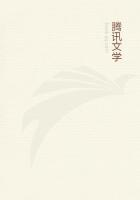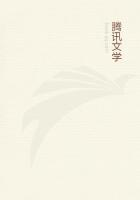That a superstition which suppresses the names of the dead must cut at the very root of historical tradition has been remarked by other workers in this field. The Klamath people, observes Mr. A. S. Gatschet, possess no historic traditions going further back in time than a century, for the ****** reason that there was a strict law prohibiting the mention of the person or acts of a deceased individual by using his name. This law was rigidly observed among the Californians no less than among the Oregonians, and on its transgression the death penalty could be inflicted. This is certainly enough to suppress all historical knowledge within a people. How can history be written without names?
In many tribes, however, the power of this superstition to blot out the memory of the past is to some extent weakened and impaired by a natural tendency of the human mind. Time, which wears out the deepest impressions, inevitably dulls, if it does not wholly efface, the print left on the savage mind by the mystery and horror of death. Sooner or later, as the memory of his loved ones fades slowly away, he becomes more willing to speak of them, and thus their rude names may sometimes be rescued by the philosophic enquirer before they have vanished, like autumn leaves or winter snows, into the vast undistinguished limbo of the past. In some of the Victorian tribes the prohibition to mention the names of the dead remained in force only during the period of mourning; in the Port Lincoln tribe of South Australia it lasted many years. Among the Chinook Indians of North America custom forbids the mention of a dead man's name, at least till many years have elapsed after the bereavement. Among the Puyallup Indians the observance of the taboo is relaxed after several years, when the mourners have forgotten their grief; and if the deceased was a famous warrior, one of his descendants, for instance a great-grandson, may be named after him. In this tribe the taboo is not much observed at any time except by the relations of the dead. Similarly the Jesuit missionary Lafitau tells us that the name of the departed and the similar names of the survivors were, so to say, buried with the corpse until, the poignancy of their grief being abated, it pleased the relations to lift up the tree and raise the dead. By raising the dead they meant bestowing the name of the departed upon some one else, who thus became to all intents and purposes a reincarnation of the deceased, since on the principles of savage philosophy the name is a vital part, if not the soul, of the man.
Among the Lapps, when a woman was with child and near the time of her delivery, a deceased ancestor or relation used to appear to her in a dream and inform her what dead person was to be born again in her infant, and whose name the child was therefore to bear. If the woman had no such dream, it fell to the father or the relatives to determine the name by divination or by consulting a wizard. Among the Khonds a birth is celebrated on the seventh day after the event by a feast given to the priest and to the whole village. To determine the child's name the priest drops grains of rice into a cup of water, naming with each grain a deceased ancestor. From the movements of the seed in the water, and from observations made on the person of the infant, he pronounces which of his progenitors has reappeared in him, and the child generally, at least among the northern tribes, receives the name of that ancestor. Among the Yorubas, soon after a child has been born, a priest of Ifa, the god of divination, appears on the scene to ascertain what ancestral soul has been reborn in the infant. As soon as this has been decided, the parents are told that the child must conform in all respects to the manner of life of the ancestor who now animates him or her, and if, as often happens, they profess ignorance, the priest supplies the necessary information. The child usually receives the name of the ancestor who has been born again in him.
4. Names of Kings and other Sacred Persons tabooed.
WHEN we see that in primitive society the names of mere commoners, whether alive or dead, are matters of such anxious care, we need not be surprised that great precautions should be taken to guard from harm the names of sacred kings and priests. Thus the name of the king of Dahomey is always kept secret, lest the knowledge of it should enable some evil-minded person to do him a mischief. The appellations by which the different kings of Dahomey have been known to Europeans are not their true names, but mere titles, or what the natives call strong names. The natives seem to think that no harm comes of such titles being known, since they are not, like the birth-names, vitally connected with their owners. In the Galla kingdom of Ghera the birth-name of the sovereign may not be pronounced by a subject under pain of death, and common words which resemble it in sound are changed for others. Among the Bahima of Central Africa, when the king dies, his name is abolished from the language, and if his name was that of an animal, a new appellation must be found for the creature at once. For example, the king is often called a lion; hence at the death of a king named Lion a new name for lions in general has to be coined. In Siam it used to be difficult to ascertain the king's real name, since it was carefully kept secret from fear of sorcery; any one who mentioned it was clapped into gaol. The king might only be referred to under certain high-sounding titles, such as the august, the perfect, the supreme, the great emperor, descendant of the angels, and so on. In Burma it was accounted an impiety of the deepest dye to mention the name of the reigning sovereign; Burmese subjects, even when they were far from their country, could not be prevailed upon to do so; after his accession to the throne the king was known by his royal titles only.














